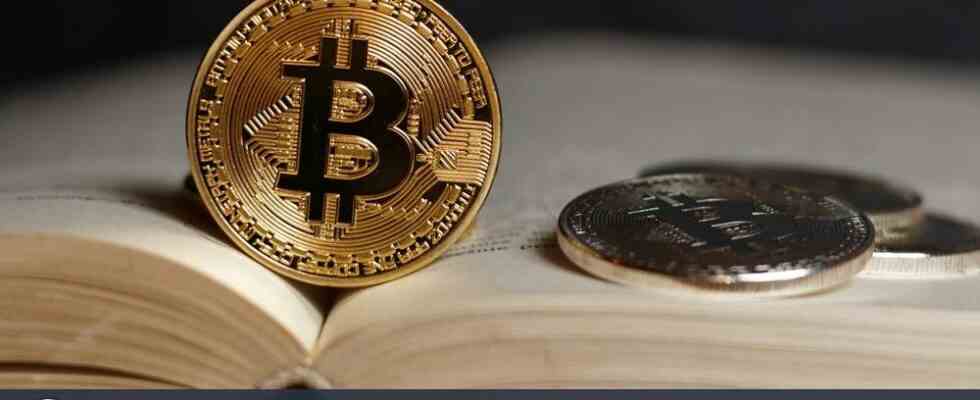We are going through an indescribable period for our country. Unfortunately, the date of February 6, 2023 has been engraved in our memories, never to be erased. Two very large earthquakes that took place in Kahramanmaraş with an interval of 9 hours not only took thousands of lives, but also inflicted irreversible wounds both materially and spiritually.
Right after the earthquakes, we took action to be one heart and support the country. Everyone wanted to help on what they knew best, and our country’s blockchain ecosystem began to evaluate what it could do in the fastest way. Thus, the Turkish blockchain ecosystem “Can we collect donations via blockchain? Is this fundraising method legal?” faced with questions.
When we think about the fundraising method using blockchain technology and look at the past, we come across the examples of India and Ukraine. Both countries accepted donations with blockchain technology under the difficult conditions of the period, transparency in donations was ensured with these wallets, which were followed publicly, and great efficiency was achieved in fundraising with this method.
The reason for this efficiency is the peer-to-peer, peer-to-peer freedom that blockchain technology offers us, and the freedom to transact very quickly, worldwide, without the need for a third-party application. When examined objectively, and as seen in the examples of Ukraine and India, blockchain technology has fulfilled one of its main tasks well.
In our country, it is necessary to examine the issue of donation/aid collection within the scope of the Aid Collection Law No. 2860. The law clearly enumerates the real and legal persons authorized to collect aid and also explains the ways of collecting aid. The law regulates and explains the receipt of the fundraising process and all other matters.
In the Regulation on Fundraising Principles and Procedures, in-kind aid is defined as “Aids made with all tangible assets other than cash and cash equivalents”, while donation is “from the real or cash assets of a person or another private law or public legal entity or public institution and organization; It is defined as giving to a person or another private law or public legal entity or public institution and organization voluntarily and without expecting any return”. Since crypto assets are not accepted as money in the world, I think that donations and aids made with crypto assets are in the status of in-kind aid defined in the regulation.
For this reason, my personal opinion is that crypto assets can be donated. However, even if donations are made, since the wallets to which the crypto assets are transferred protect the anonymity, the receipt cannot be issued for the donations. If the donor person or institutions report the transactions they have carried out, this deficiency will also be eliminated, and in this way, the donated crypto asset can be converted into Turkish Lira and its receipt can be deducted from this provision. When the donation of crypto assets is examined within the framework of the law numbered 2860, it results that crypto assets can be accepted as donations in the status of aid in kind, but the donation received cannot be documented due to the anonymity offered by the technology.
Another point of view is the Regulation on the Prevention of Laundering Proceeds of Crime and the Financing of Terrorism and the framework of the law no 5549. In this context, one of the responsibilities imposed on crypto asset service providers is the obligation to notify MASAK of suspicious transactions carried out within the relevant crypto asset service provider.
Namely, due to many large and small anonymous transactions, these transactions must be reported to MASAK by the service provider. If MASAK has the relevant user account blocked due to these anonymous and suspicious transactions, or if the said user account is seized through the magistrate, the crypto asset donations clearly lose their function and purpose. Although the regulations prepared and enacted under the FATF provide significant benefits in terms of public safety, these regulations highly restrict the movements of crypto assets.
Finally, it is necessary to approach this issue from another angle: the regulation dated April 16, 2021, published and put into effect by the Central Bank of the Republic of Turkey. The Regulation on the Non-Use of Crypto Assets in Payments has an extremely short text and draws sharp boundaries.
As stipulated in the regulation, there is no legal basis for receiving payments with crypto assets yet. Although this regulation is seen as a regulation for commercial purchase and sale transactions, it should not be ignored that donations can also be considered as “gratuitous income” within this framework.
Considering all these issues, what could be the solution?
Special authorization can be given to non-governmental organizations to receive donations with crypto assets in the status of aid in kind. The limits of this authority can also be drawn specifically. Considering our current disaster situation, a useful and safe way can be followed in the current conditions, thanks to the fact that the payments and shipments to be made to the organizations that can accept donations with crypto assets are carried out with an arrangement without considering any lower or upper amount limits, without being considered as suspicious transactions and without suspension.
By announcing such a practice to the world public, trust will be established among donors around the world and it will pave the way for much larger donations to be collected within the scope of this disaster experienced by our country.
Hunting. Burak Mercan
Blockchain Crypto Asset Association
Secretary General
For exclusive news, analytics and on-chain data Telegram our group, twitter our account and YouTube Follow our channel now! Moreover Android And iOS Start live price tracking right now by downloading our apps!
